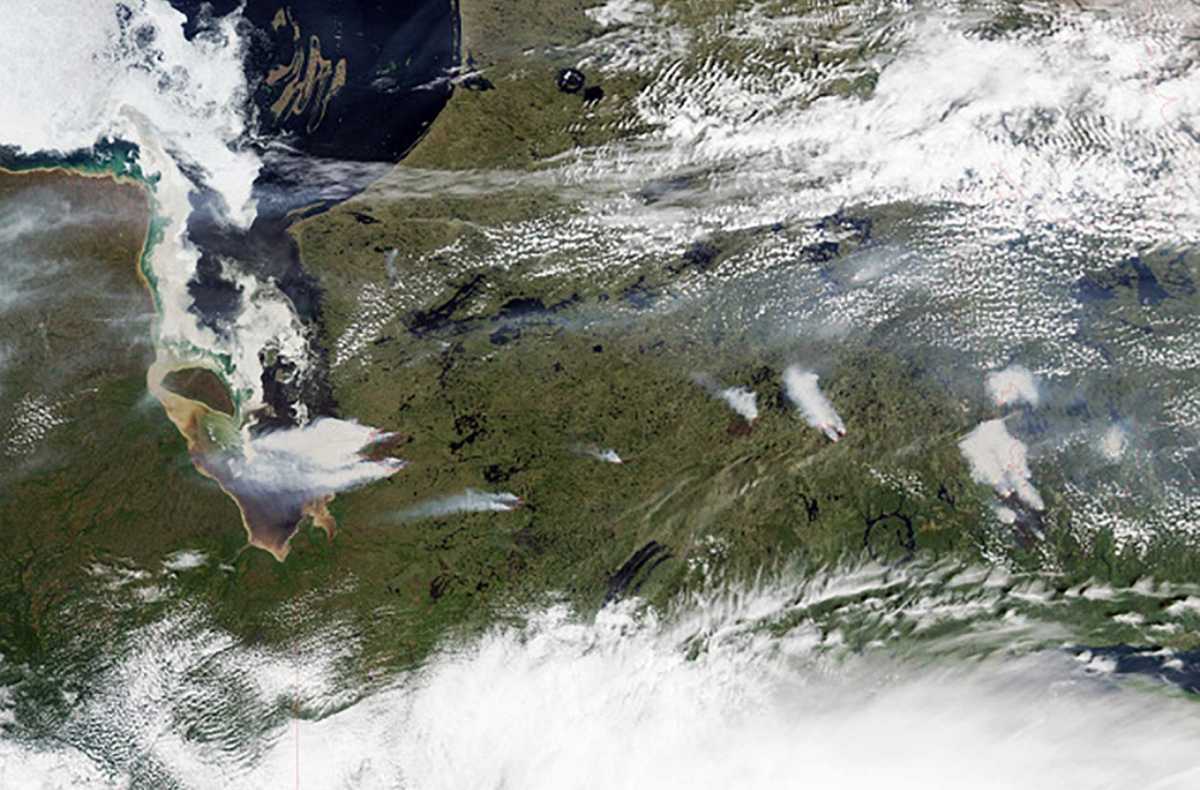Metcalf is delighted to announce the inaugural grants in our Environment Program’s Carbon Landscapes funding stream.
The goal of Carbon Landscapes is to connect climate action and conservation initiatives in Canada in order to help advance natural climate solutions. We have a two-track funding strategy to achieve our goal:
Strategy 1: Build sector capacity, intellectual leadership, and public understanding of linkages between climate and conservation issues to create space and support for advancing policy priorities across Canada.
Strategy 2: Support on-the-ground protection, restoration, and stewardship efforts to store and sequester carbon in the Hudson Bay and James Bay Lowlands and the Mackenzie River Basin.
The first deadline for Carbon Landscapes’ Strategy 1 was April 17, 2018 and we were overwhelmed with demand. Applications were reviewed by the Foundation’s staff, assisted by an Advisory Committee with knowledge of the sector. In June, the Foundation’s Board approved four grants under Strategy 1 and one grant under Strategy 2; they are as follows:
Strategy 1 Grants:
- $40,000 over one year to International Institute for Sustainable Development (IISD) in partnership with the Poplar River First Nation
This collaborative project between IISD and the Poplar River First Nation will assess the potential of a carbon management and benefits sharing agreement between the Government of Manitoba and the Poplar River First Nation. Funding will support two primary deliverables:
- Policy analysis regarding the necessary legislative and policy reforms required in Manitoba to facilitate a First Nations carbon finance initiative.
- A model carbon finance benefit-sharing agreement between Poplar River First Nation and the Government of Manitoba that could be used for other boreal First Nations.
- $63,250 over one year to Nature Conservancy of Canada in partnership with the International Union for Conservation of Nature (IUCN)
Led by Dr. Risa Smith, Co-Chair of IUCN’s Protected Areas Climate Change Specialist Group, this research project will lead to recommendations for how the Government of Canada can include natural climate solutions policies as a core component of future climate action in the run-up to Canada’s 2020 update to its contributions to the Paris Climate Agreement. Risa will organize five workshops across the country with key stakeholders, conduct individual interviews, and scan existing research to report on what Canada’s leading thinkers in this space identify as the most promising natural climate solutions policies for Canada to advance in the lead up to 2020 and beyond.
- $200,000 over two years to Nature United in partnership with The Nature Conservancy Global Lands & Carbon Science Teams
Funding will support Nature United to convene some of North America’s leading scientists, along with policy makers in government who share an interest in advancing natural climate solutions, to produce a white paper and a peer-reviewed study that provides a scientific basis to advance natural climate solutions in Canada. This research builds on a 2017 peer-reviewed study led by scientists from the global arm of The Nature Conservancy and 15 other institutions that found natural climate solutions can deliver up to 37% of the emissions reductions needed globally by 2030. A follow-up study, which focused on the United States, is being led by scientists from The Nature Conservancy and 21 other institutions. This study’s draft is currently undergoing peer review for publication.
- $66,000 over one year to the University of Guelph’s Department of Geography, Environment, and Geomatics
How might Indigenous-led, nature-based carbon sequestration efforts align with more universal conservation and climate objectives in a way that also achieves Indigenous community benefits and advances Indigenous land rights? This overarching question guides the work of Dr. Faisal Moola, his research partners, and colleagues at the University of Guelph. Funding will be used to support research and convening activities over the coming year, including:
- Interviews with leaders working on emerging conservation directions in Canada such as Tribal Parks and Indigenous Protected and Conserved Areas (IPCAs) to identify how these might serve as sites of nature-based, carbon sequestration efforts, including wilderness protection and restoration of degraded landscapes.
- Convening Indigenous leaders, non-governmental organizations, scientists, sector leaders, and policy makers in a facilitated gathering to map shared interests, identify key questions, and discuss challenges and opportunities involving carbon, conservation, and Indigenous rights in Canada.
A report outlining findings from the above interviews and convenings will be produced, highlighting research gaps and opportunities to advance Indigenous-led, nature-based carbon sequestration aligned with conservation and climate objectives. Digital stories and short films will be used to amplify the findings.
Strategy 2 Grant:
- $225,000 over three years to Tides Canada in partnership with Lutsel K’e Dene First Nation, K’atl’odeeche First Nation, Dehcho First Nations, Sambaa K’e First Nation, Ka’agee Tu First Nation, Jean Marie River First Nation, Tlicho Government, and the community of Fort Good Hope
In Canada’s Northwest Territories, territorial and Indigenous governments are in the final stages of establishing up to eight new protected areas. The protected areas that have been proposed are not only culturally and ecologically significant but serve a vital and nationally important role in storing and sequestering carbon. Since 2014, Tides Canada’s Northern Terrestrial Conservation program has been facilitating collaboration and supporting the organizational capacity of Indigenous governments to engage in this protected areas planning process.
Over the next three years, funding will support Tides Canada to:
- Host, coordinate, advise, and facilitate the collaborative work of the Indigenous governments, regularly convening them to develop shared approaches to advocacy, negotiation, and planning in the interest of advancing candidate protected areas;
- Sustain and in some cases amplify the core capacity of some of the Indigenous governments, as the flurry of work to establish each candidate protected area increases the closer it gets to the “finish line”; and
- Work in partnership with the Indigenous governments to undertake an evaluation of the carbon storage and sequestration role played by the candidate protected areas as a key rationale for supporting formal establishment of these protected areas.
Future Carbon Landscapes Deadlines
The Foundation had originally planned to have a second Carbon Landscapes Strategy 1 deadline in the fall but in light of the overwhelming demand in our April round and the high calibre of applications received, we have made the tough decision to cancel the October deadline. New 2019 funding deadlines for Carbon Landscapes will be announced in late 2018. Applications to Carbon Landscapes Strategy 2 are by invitation-only.




